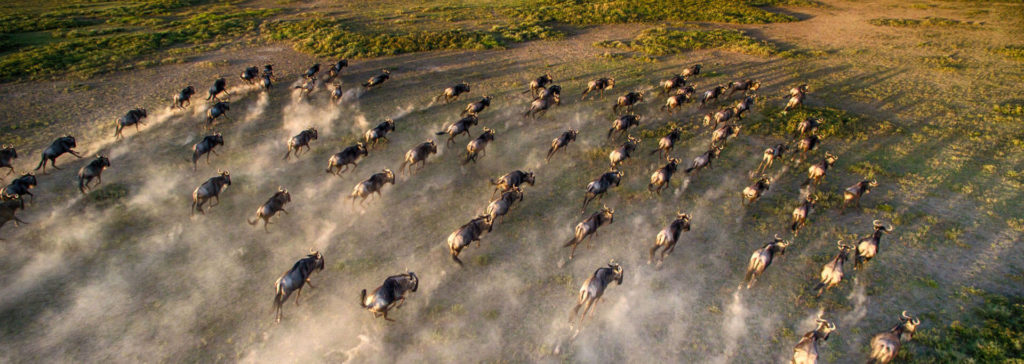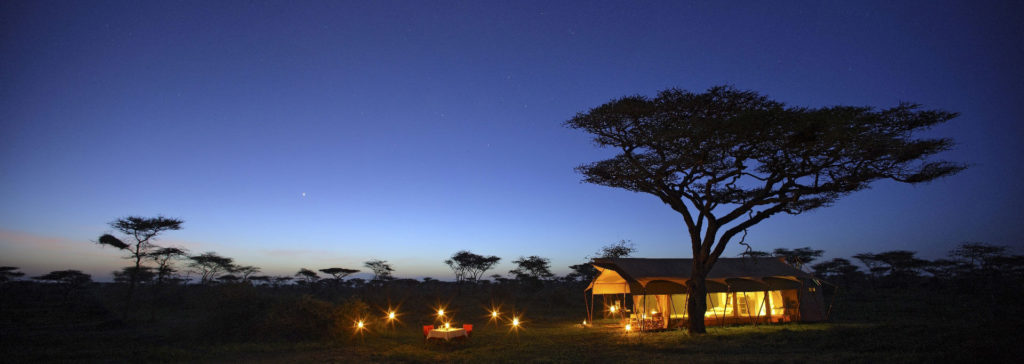Tanzania is a country in East Africa, situated just south of the equator. The country encompasses a mainland as well as the islands of Zanzibar, Pemba and Mafia. Alongside its breathtaking national parks, wildlife and beaches, the country is rich in tradition and culture. Home to over a hundred different cultural groups, Tanzanian cuisine has evolved to include a variety of flavours and ingredients from all around the world.
Tanzanian cuisine reflects both the country’s history and geography. With the arrival of Arab merchants on East Coast Trade routes and the settlement of Indian families in the 19th century, Tanzanian cuisine has evolved to incorporate Indian and Arabic flavours. One of the highlights of Tanzania is the variety of delicious local cuisine. With dishes filled with flavour and spice, the most prominent ingredients of which include plantains, coconut, rice and cornmeal.
In the following post, we discuss some of the top Tanzanian dishes that you simply have to try. We also share a few of the restaurants in Cape Town where you can sample some traditional Tanzanian meals, as well as other popular African cuisines. We also share our recommendations for luxury safari lodges in Tanzania.
Tanzanian food is simple, flavourful and filling. When visiting this beautiful country, here are five delicious foods that you have to try.
Tanzanian foods that you have to try
Ugali
Ugali is one of the most common foods in Tanzania due to its simplicity and affordability. Cornmeal and water are mixed and simmered until it becomes a dough-like consistency.
This starchy dough side-dish accompanies many traditional Tanzanian meals that involve meat or vegetable stews. Local Tanzanians usually use their hands to scoop some of the ugali and mash it into a small ball; this is then dipped into the main dish and eaten together.
Nyama Choma
Nyama choma is Swahili for “grilled meat”. Once the meat is on the grill, it is left to cook very slowly over some hot coals, giving it a deeply smoky flavour. It can take anywhere from 45 minutes to an hour to cook, so it’s common for groups of friends to come together and have a few drinks while the nyama choma is on the grill.
Chipsi Mayai
Chipsi mayai, which translates to “chips and eggs”, is one of Tanzania’s most popular breakfast dishes. Chips in Tanzania are a bit different to the western version of french fries; the potatoes are freshly peeled and hand-cut, then fried to crispy perfection. You’ll find chipsi mayai sold at most local eateries and outdoor food markets, and it is usually eaten with toothpicks and a dollop of tomato sauce.
Mandazi
Mandazi, a popular Tanzanian food, is a fried bread that is commonly served with tea. Water, sugar, flour, yeast and milk is kneaded together to make a smooth dough. The dough is then cut into small triangular pieces and fried in hot oil. They are fried similar to a samoosa and can be eaten as a snack or used as a dipping bread.
Mandazi has a fluffy texture similar to a donut, but is not as sweet. This local snack can be found everywhere in Tanzania, including local restaurants or hotels.
Wali wa nazi
A popular local dish, wali wa nazi, is a creamy side that accompanies a main meal of chicken, fish or red meat. Coconut rice or wali wa nazi consists of rice cooked with coconut milk and water, which is then garnished with stewed vegetables.
Wali wa nazi is primarily found on the coast, which contrasts with inland diets that consist of more beans, cornmeal and millet. Coconut rice is also one of the popular dishes eaten in the neighbouring country of Zanzibar.
Ndizi Kaanga
One of the most common ingredients in Tanzanian food is plantains. This Tanzanian fruit belongs to the banana family but is generally starchier and lower in sugar. Several Tanzanian dishes have plantain as the core ingredient, for example, ndizi kaanga, meaning fried plantains in Swahili, is a typical East African food.
The plantains are sometimes grilled on hot coals then seasoned with salt, or they can be seasoned with sugar to give it a sweet taste.
Restaurants in Cape Town that serve Tanzanian food
While there are no exclusively Tanzanian restaurants in Cape Town, there are a few popular eateries that include Tanzanian dishes on the menu.
Gold Restaurant
Offering an immersive dining experience, Gold Restaurant takes guests on a unique culinary journey through Africa. Dinner is a 14-dish tasting menu of traditional African foods, which includes a Tanzanian fish curry cooked with coconut milk and stewed vegetables.
The Tanzanian kachumbali, also featured on the menu, is a chilli relish widely enjoyed in East Africa, and served as an accompaniment to the main dish.
The Africa Cafe
The Africa Cafe celebrates the diversity of African cuisine with a menu of rich aromas and flavours from around the continent. Featured on the menu are Tanzanian sesame chicken kebabs, which consist of a filleted chicken breast, marinated in soy sauce and honey, and cooked on a hot grill.
Restaurants in Cape Town that serve traditional African cuisine
The following restaurants boast menus that include various African cuisine. Ethiopian food is extremely popular in Cape Town, so there are a few options for sampling this delicious cuisine. Other restaurants have varied menus, often including game meat and meals with Cape Malay influence.
Mama Africa
Mama Africa is a celebration of Africa’s vibrant culture and diverse cuisine. This restaurant focuses on creating a warm atmosphere, where locals and tourists can meet, interact, and enjoy delicious African cuisine. Some of the popular dishes on the menu include a Cape Malay inspired bobotie, Moroccan prawns and a unique meat selection, including crocodile, springbok and kudu.
Marco’s African Place
Marco’s African Place is a 220-seater restaurant that is best known for its live music, African culture and indigenous cuisine. Guests can choose between the set menu or the buffet, which includes dishes such as ostrich fillet, creamed spinach, seafood and pap.
Marco’s African Place often hosts live bands, so prepare for a night of delicious food and dancing to the sound of marimbas and djembes.
Addis in Cape
Another country praised for its cuisine is Ethiopia, and thankfully, there are plenty of Ethiopian restaurants in Cape Town.
Addis in Cape brings a taste of Ethiopia to Cape Town with traditional ingredients, rich aromas and exotic spices. Guests sit around a central low table, presented with a large share plate comprising the traditional Ethiopian pancake, injera, and various side dishes.
The traditional hand-washing ceremonies and Ethiopian coffee tastings make this a memorable experience for families and groups of friends. There is an equal amount of meat, vegetarian and vegan dishes on the menu, which makes Addis in Cape an excellent option for those who don’t eat meat.
Timbuktu Cafe
Specialising in Ethiopian cuisine, Timbuktu Cafe is a firm favourite for groups of friends looking for a sharing platter. Situated on the lower main street in Observatory, Timbuktu Cafe has an intimate and relaxed atmosphere.
There is a variety of meat and vegetarian meals on offer, served with traditional Ethiopian pancake called injera. One of the highlights of Timbuktu Cafe is the traditional coffee ceremony, enjoyed either before or after your meal.
Travelling to Tanzania
At present, due to the Covid-19 pandemic, international travel is prohibited. While the current situation does not allow for travel, you can still plan your safari vacation to Africa for when the travel bans lift.
Two of the biggest drawcards to Tanzania are the Great Migration and Mount Kilimanjaro. Each year, Kili draws thousands of adventure seekers and adrenaline junkies, each determined to summit the majestic mountain in an often gruelling series of day hikes.
Second to Mount Kilimanjaro, the annual Great Migration is an extremely sought-after travel experience for safari aficionados looking for a truly unique safari.
Each year, thousands of wildebeests and various antelope species trek across the Serengeti in Tanzania to the Masai Mara in Kenya, in search of fresh feeding grounds. Scores of prey trekking across open and expansive lands means that hungry predators lurk close by, often resulting in exceptional game viewing of mother nature and the food chain in action.
The Great Migration attracts thousands of travellers each year. These eager wildlife lovers flock to the plains of the Serengeti to view these exceptional, once-in-a-lifetime, game viewing sights. While in 2020, the stars of the Great Migration may not have spectators, 2021 will certainly bring an audience.
Even though the global state of travel is on hold for now, you can still take time to read about your vacation options for when travel resumes. If you’re a seasoned safari aficionado, and you know the roads of the Kruger National Park backwards, read up about the Great Migration.
If you’re salivating at the thought of tucking into a plate of chipsi mayai or watching with bated breath as hordes of antelope attempt the death-defying Mara River crossing, be sure to add the following top safari lodges in Tanzania to your list for your Serengeti safari.
Perfect for honeymooners, families and small groups on safari, here is our list of the recommended lodges and camps in Tanzania.
andBeyond Serengeti Under Canvas
Carefully planned to anticipate the movement of the Great Migration, Serengeti Under Canvas is a temporary mobile tented camp that is constantly being set up ad broken down to follow the herds across the Serengeti. This brings guests as close to the wildebeest action as possible.
andBeyond Ngorongoro Crater Lodge
With views of the Ngorongoro Crater, this luxury lodge promises an unforgettable stay like no other. As well as game drives to view animals in their natural habitat, guests can enjoy hiking adventures to view the area that is steeped in rich history and culture.
andBeyond Grumeti Serengeti Tented Camp
Beautiful tented camps, incredible scenery and exciting experiences to view wildlife, guests will have the unique opportunity to visit Africa’s largest lake, Lake Victoria.
What can you expect to eat on a safari in Tanzania
Curious about safari cuisine in Tanzania? While you’ll certainly come across some traditional Tanzanian food and ingredients, you can also expect plenty of game meat to sample, as well as the standard breakfast spreads of cereals, eggs and more.
Expect plates filled with delicious food, generous portions and tasty snacks, including freshly baked bread and sweet treats. Even though the menus consist of food which most travellers are acquainted with, the dishes usually have an authentic Tanzanian influence.
Depending on the meal set up style of the safaru loge you decide to stay at, you’ll more than likely encounter generous buffets or meals from a set menu, or a mix of both. Most camps and lodges partner with local communities for the supply of dairy and fresh, seasonal vegetables. Dining at the lodges we’ve recommended above is ruly bespoke experience, so whether you’re vegan, vegetarian, gluten-intolerant or banting, chefs will go out of their way to serve you delicious meals, fit to your dietary requirements.
Tanzania is an incredible country to visit. From delectable traditional cuisine to the extremely exciting safari experiences, particularly due to the annual Great Migration, this East African country is on the top of our travel list.
If you would like to experience the magic of Tanzanian culture, cuisine and the Great Migration in 2021, schedule a complimentary call with the African Travel Canvas founder to discuss your bucket list!






What do you get when you combine centuries of traditional East African flavors with the best in Indian and Middle Eastern cuisine? Well, you get Tanzanian food.